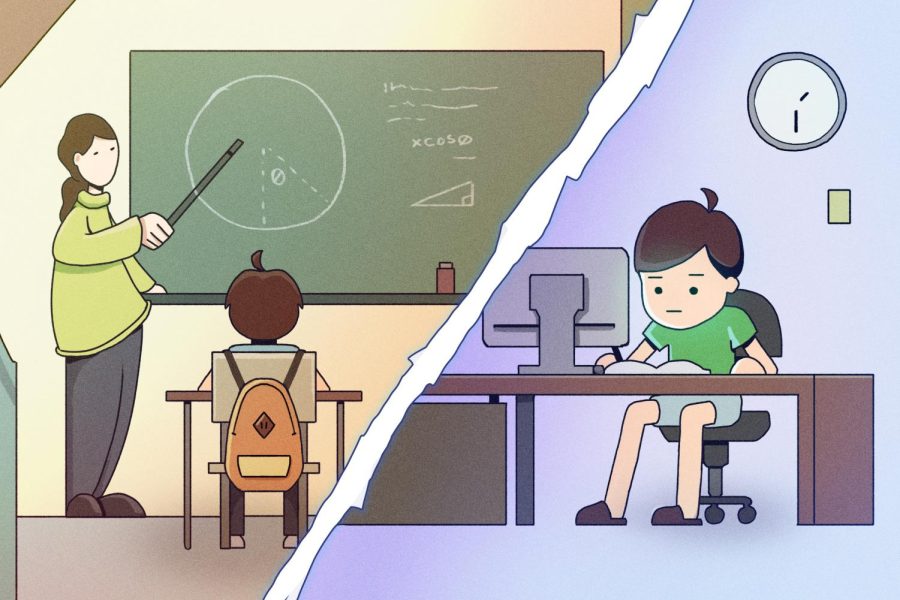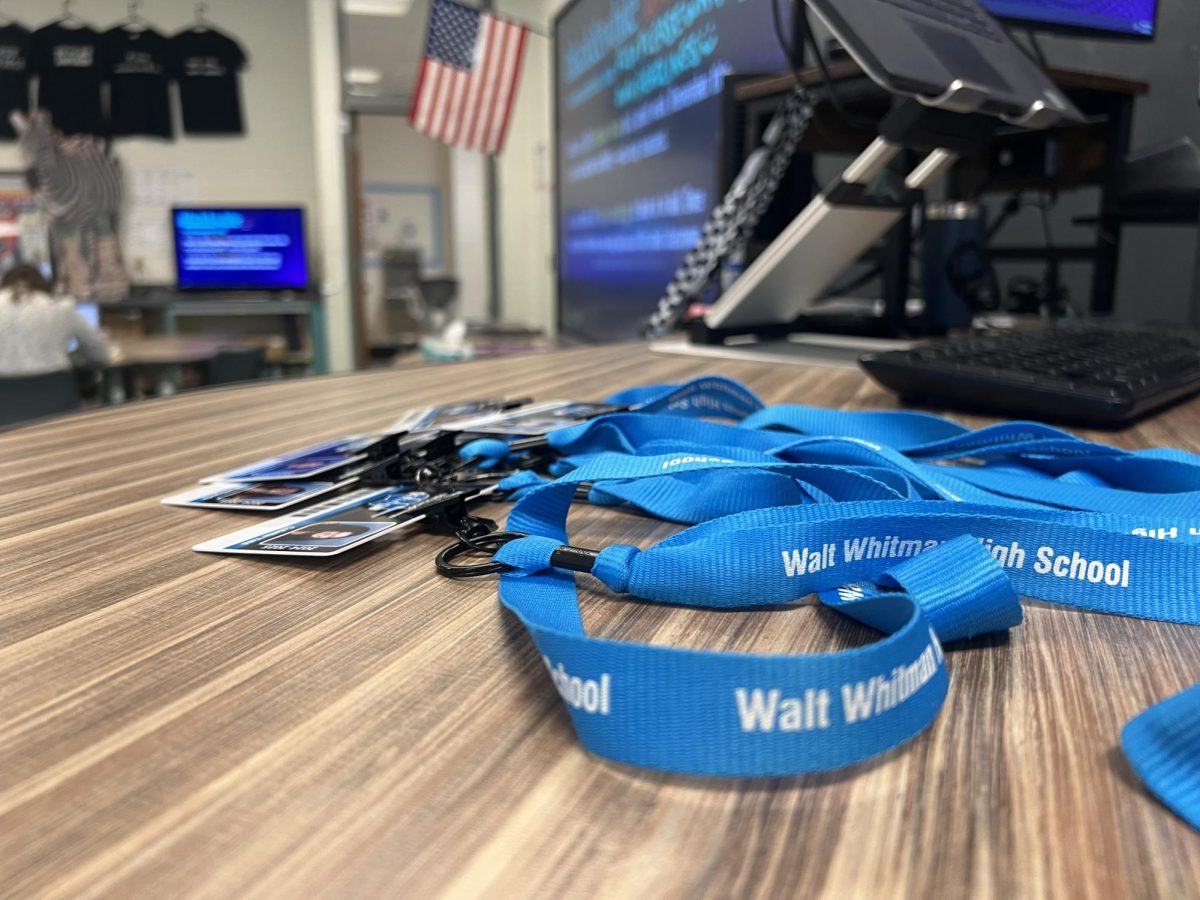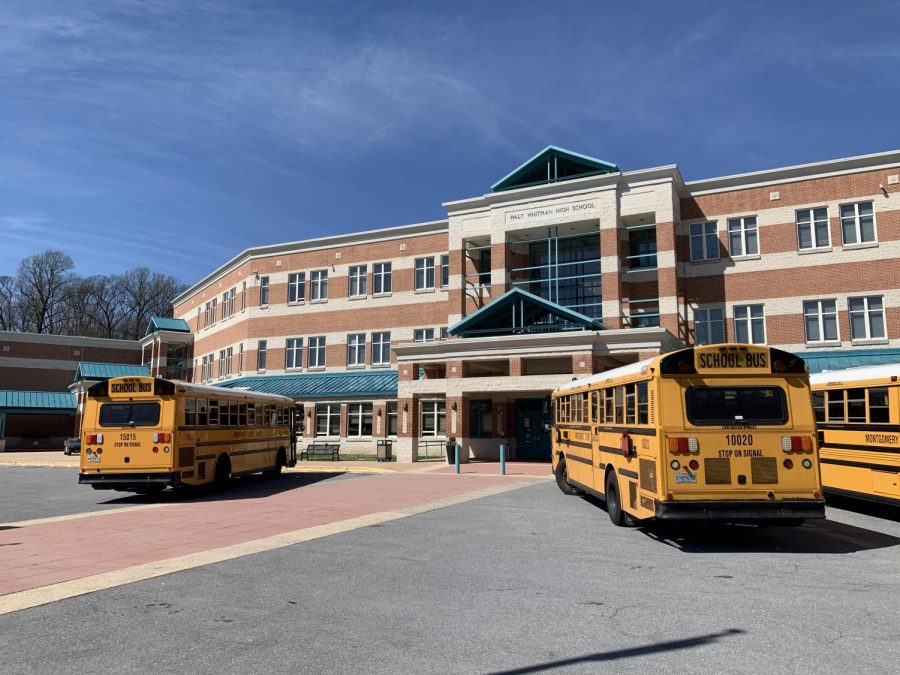The Maryland Legislature passed the Online Data Privacy Act and the Maryland Kids Code this spring. These bills have the power to restrict the amount of personal data that tech platforms can access and use from Maryland citizens.
The Online Data Privacy Act forbids online services from collecting or sharing Maryland users’ personal data such as ethnicity, religion, sexual orientation, health and location unless it is “strictly necessary.”
Tech industry trade groups — including Amazon, Google and Meta representatives — have strongly opposed this act. They argued the laws violate their constitutional rights, signaling a significant rift between industry giants and legislative efforts to regulate the use of personal data.
Computer Science teacher Ryan Krueger believes online safety is an important issue people often neglect to favor efficiency.
“I don’t think many of us realize how much of our information is shared,” Krueger said. “It makes me feel pretty good that we’re moving in the right direction. I want my information kept safe.”
In addition to the Online Data Privacy Act, the Maryland Legislature implemented the Maryland Kids Code, which protects minors from the harmful and addictive features of certain online platforms. The code mandates the automatic activation of the highest privacy settings on apps and platforms, limiting tech companies’ ability to collect personal data such as the precise locations of minors.
Jared Solomon introduced the Maryland Kids Code to the State Senate on Jan. 15, 2024, which lawmakers have since passed through many readings, committees and chambers before reaching Maryland Governor Wes Moore.
The protection of online privacy is an ongoing concern. AT&T reset 73 million customers’ passwords after a hacker named Shiny Hunter claimed to have breached their records. AT&T reported that their data was posted online to a cybercrime forum in April. Data leaks have been present in school systems as well. This school year, Montgomery County Public Schools faced a data breach, which compromised the data of nearly 6,000 students. Because of the recent information leaks, Whitman Media Specialist Alexis Mazur is concerned about minors’ online privacy.
“Companies may know more about you based on your patterns, than you may,” Mazur said. “It’s opening up minors’ lives to a lot more trouble with sensitive data.”
Governor Moore must sign the bills for them to go into effect, though he has not yet publicized his position on the matter. If enacted, the Online Data Privacy Act will take effect Oct. 1, 2025, but won’t apply to Maryland citizens until April 1, 2026, to give businesses more time to update their privacy practices. The Kids Code would take effect Oct. 1 of this year.
Delegate Sara Love, a Democratic member of the Maryland House of Delegates, is a sponsor of the Online Data Privacy Act and co-sponsor of the Maryland Kids Code. Love called the passing of the two bills a “huge privacy milestone.”
“It puts guardrails up on the amount of data that companies can collect on people online and also what they do with that data, and it gives consumers more control over their own data,” Love said in an interview with CBS News.
If passed, Maryland will join multiple states — California, Connecticut, Texas and Utah — that have enforced privacy legislation and online protections for minors.
Early this year, NetChoice — a prominent tech trade organization representing companies like Amazon, Google and Meta — sued the state of Ohio, claiming that Ohio is violating constitutional rights and taking away parents’ authority to care for their children. The lawsuit aims to challenge online and social media restrictions targeting minors. NetChoice has already succeeded in similar cases against California and Arkansas, arguing that the limitations violate their constitutional right to freedom of speech to relay information.
The Maryland Kids Code is based on the 2022 California Age-Appropriate Design Code Act, which requires companies to consider children’s privacy and protection when designing any digital product or service accessible to children.
In September, a federal judge in California temporarily blocked California’s Age-Appropriate Design Code Act children’s code law, supporting NetChoice’s argument for free speech. Last year the New York Times and the Student Press Law Center filed a joint amicus curiae brief — offering relevant information to the case as an outside party — in the California case, agreeing with NetChoice that the law may restrict students from accessing newsworthy content.
Carl Szabo, NetChoice’s vice president and general counsel, argued the Maryland Kids Code would interfere with companies’ rights to freely dispense information and individuals’ rights to receive information freely.
Maryland lawmakers worked with constitutional experts to amend the bill by addressing free speech worries and unanimously passed a new version of the bill.
“We are technically the second state to pass a kids code,” Jared Solomon, the bill’s sponsor, said. “But we are hoping to be the first state to withstand the inevitable court challenge that we know is coming.”
In a statement, Szabo said NetChoice hoped Governor Moore would veto the bill. He argued that government regulations can’t replace parental restrictions and the government must collaborate with parents to keep kids safe online.
Junior Valentina Levya thinks minors are often unaware of the dangers of social media and emphasizes the importance of privacy settings.
“At the end of the day,” Levya said, “states should prioritize minors’ and peoples’ privacy rather than being able to give money to these big companies for them to profit from our information.”

















